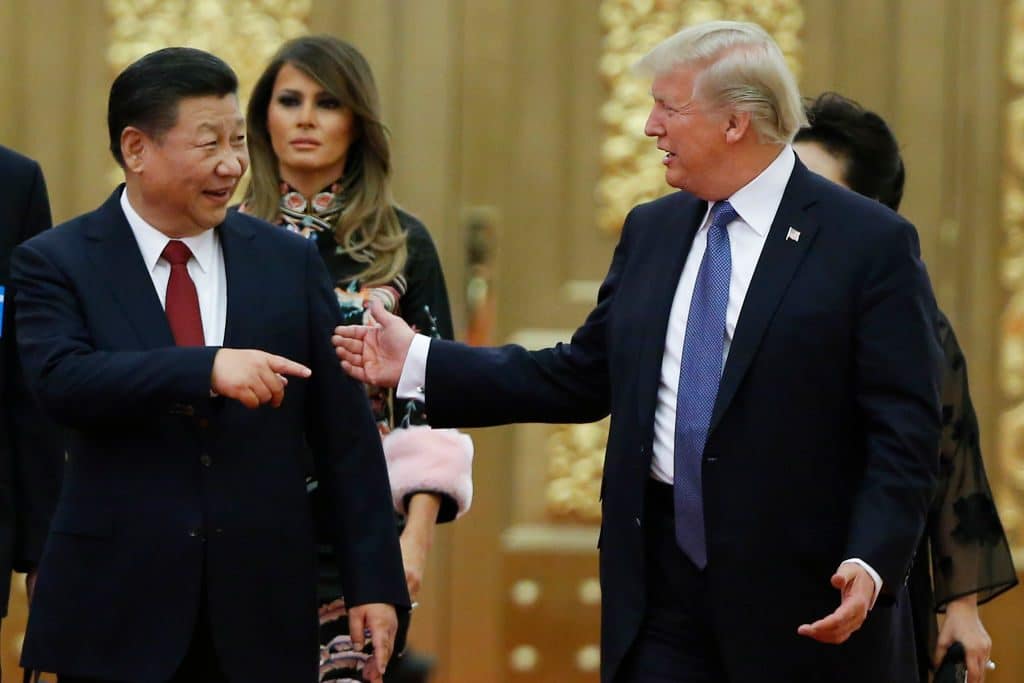Protectionism and politics tops Trump’s admiration for Chinese leader
Developments on Day 426 of the Trump Administration:
Restrictions on Chinese Products and Investments
Countering his effusive praise of China’s leader Xi Jinping, Donald Trump is set to announce at least $50 billion of annual tariffs and penalties — about 10% of China’s yearly trade with the US — over its alleged theft of technology and trade secrets.
Trump’s measures will be the second shot by Administration protectionists in what could become a global trade war. Two weeks ago, the President announced a 25% duty on steel and 10% on aluminum.
The steel-aluminum announcement posed immediate challenges for the Administration’s tactics. The measure did not affect China but instead hit exporters to the US such as Germany, Japan, South Korea, and Brazil. At the last minute, Canada — the largest foreign supplier of steel — and Mexico were excluded from the tariffs because they were likely to violate provisions of the North American Free Trade Area.
Trying to regain the initiative, Administration officials then pointed at China, using a 1974 trade law that can impose tariffs for unfair practices.
During his 2016 campaign, Trump accused China of “raping” the US economy and “taking advantage of us like nobody in history.”. However, since entering office, his rhetoric has been mitigated for Xi Jinping, whose officials laid on lavish ceremonies for Trump in China in November 2017.
That admiration will be set aside when tariffs are imposed on Chinese goods in up to 100 categories from shoes and clothing to consumer electronics, and restrictions are placed on Chinese investments in the US.
Officials said the punishments are necessary to prevent Beijing from dominating sectors like artificial intelligence and mobile technology. They said that Chinese firms force US companies into partnerships, then steal technology and end the joint venture; that Beijing’s “cyber intrusion” steals commercial secrets; and that US companies operating in China do not have the same property rights that Chinese firms have.
In recent years, Chinese companies have sought deals in the US in areas such as semiconductors and autonomous driving, as well as purchasing assets like movie theaters and the Waldorf Astoria Hotel in New York. Beijing views an American stranglehold on fundamental technologies as a long-term economic and security threat.
At a news briefing on Wednesday, Foreign Ministry spokeswoman Hua Chunying said China does not want a trade war and trade and investment between the two countries have lowered costs for American consumers.
She said China will be ready to retaliate, without providing details: “If the day did come when the U.S. took measures to hurt our interests, we will definitely take firm and necessary countermeasures to safeguard our legitimate interests.”
Legislators Agree $1.3 Trillion to Keep Government Open Til September
Republican and Democrat leaders agree a $1.3 trillion spending bill to keep the federal government open through September.
With the Trump Administration still not presenting a budget for confirmation after 14 months in office, Congress has relied on a series of short-term continuing resolutions to authorize expenditure. The fifth resolution in six months expires on Friday.
On two occasions, the government has briefly shut down but last month, a bipartisan compromise agreed extra spending for military and domestic programs — defying the Trump Administration’s intention for deep cuts in agencies — and a raising of the debt ceiling.
“Every bill takes compromise, and there was plenty here,” said Senate Minority Leader Chuck Schumer on Wednesday. “But at the end of the day, we Democrats feel very good because so many of our priorities for the middle class were included.”
Donald Trump wavered on Wednesday about whether he would support the package because it lacked sufficient funding for his Wall with Mexico. House Speaker Paul Ryan went to the White House to settle Trump in a meeting that included Vice President Mike Pence; Marc Short, the White House legislative affairs chief; and Senate Majority Leader Mitch McConnell, who joined by telephone.
Trump fumed on Wednesday night but endorsed the deal:
Got $1.6 Billion to start Wall on Southern Border, rest will be forthcoming. Most importantly, got $700 Billion to rebuild our Military, $716 Billion next year…most ever. Had to waste money on Dem giveaways in order to take care of military pay increase and new equipment.
— Donald J. Trump (@realDonaldTrump) March 22, 2018

